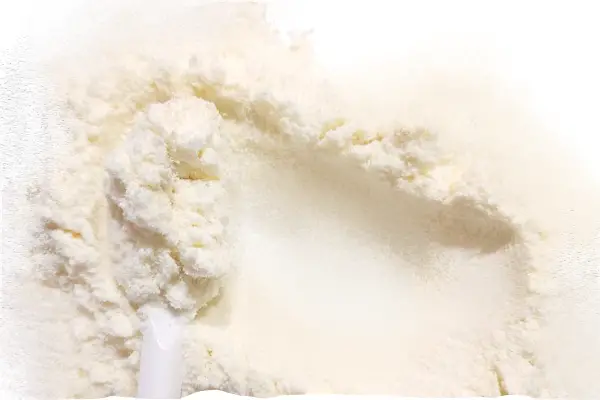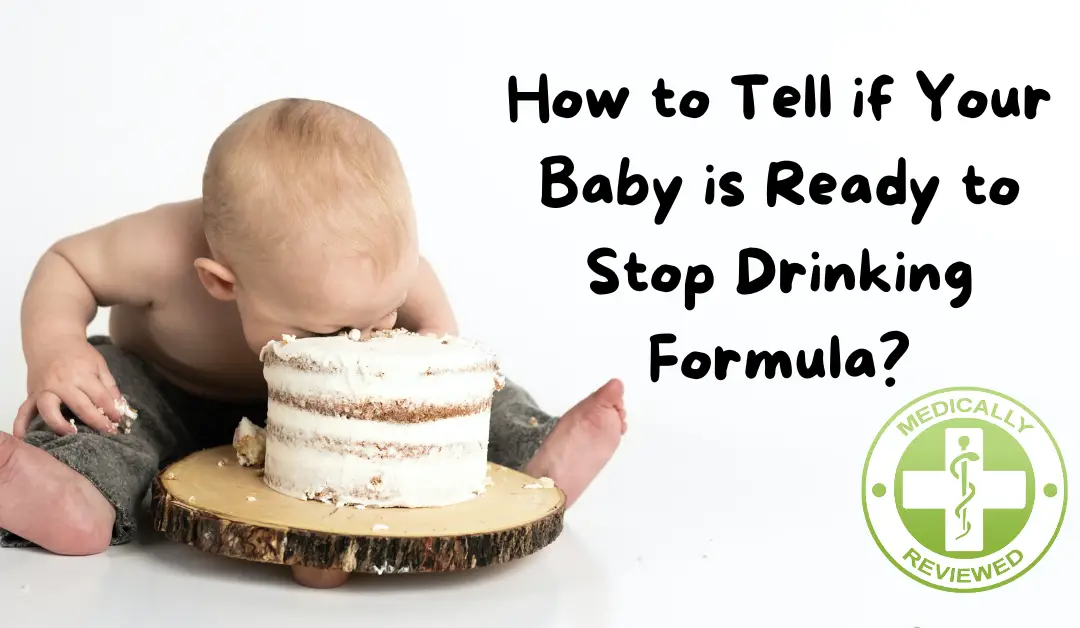For those of you who use baby formula to feed your little one, the jostle begins with the process of choosing the right product that suits your baby.
You may feel that the first few months you must live day to day. Each day brings in new challenges and new learning with respect to your baby’s food habits.
Then, at some point in time after your baby has begun solid foods, you might wonder whether it is time to stop feeding formula.
How do you judge this?
If you are using a cow milk-based baby formula, you might be tempted to make the transition abruptly, feeling that the baby formula is similar to cow milk. This is correct to some extent, however abrupt transition is never advisable.
Table of Contents
When is the right time to stop drinking formula?
For most normal babies, the recommended time to shift from baby formula to full cow milk is around 12 months of age. However, this is not a hard and fast rule and some deviations are required to customize as per your baby’s requirements.
So, you can safely take it that it is good to stop formula feeding anywhere between 12 to 24 months.
It is usually recommended not to stop formula feed and introduce whole cow milk before 12 months as the baby’s organs like the kidneys are not fully developed to handle the proteins, fat, and sodium in whole cow milk.
Rarely, babies may also rarely develop some allergies to whole cow milk even though they might have been on milk-based baby formula.
Additionally, you should begin semi-solid and solid foods after 6 months of age. By the time your baby is 12 months of age, fluids like milk are just supplementary to the solid foods. Fluids are not the primary source of energy and nutrients and so stopping baby formula should not make any difference to the nutrition of your baby if the weaning process from 6 months of age has been right.

When can you not stop drinking formula even though your baby is 12 months?
The above guidelines are specific for babies who are normal with normal weaning wherein your baby has portions of all the food groups as you, though in modified and smaller amounts. Any deviation from normal may mean that your baby may not be ready to stop drinking formula without having problems like weight loss, inadequate weight gain, nutritional deficiencies and so on.
If your baby was premature, or of low birth weight or if your baby weighs significantly below average weight for age, then your pediatrician may want you to postpone stopping formula. Developmental delays, iron and vitamin deficiencies are other reasons why you may have to wait before stopping formula milk.
At times, your pediatrician may prescribe stopping baby formula but not going onto full fat milk to avoid obesity or problems like heart disease. Weight gain of your baby should be adequate though.
How to stop drinking formula?
Slow and steady wins the race – so a steady and gradual transition is prescribed to allow your baby’s digestive system the time to adjust to the change. Your baby is used to the bottle, so suddenly stopping it may not be a good idea.
Sucking the bottle may just be an emotional need for your baby and have minimal nutritional role. This is also a reason why you should not pull away the bottle abruptly. The flavor of cow’s milk which is full fat is also different from formula milk. So, allow your baby to adjust to the change.
You may begin with using a formula to cow milk in the ratio of 3:1, if well tolerated, increase to 1:1 and then 3:1 in favor of cow milk before stopping formula milk completely. Ensure that you give enough time to your baby to adjust to the proportions before you change the same.
Babies should receive 16 to 24 ounces of whole milk daily during this period. This amount should be divided over 4 to 5 meals of 8 ounces each.
What are the alternatives other than cow milk while stopping formula milk?
It cannot be emphasized enough that most of the nutrients that your baby needs should come from solid foods. Formula feed is fortified with vitamins and minerals like Vitamin C and iron because milk is deficient in these micronutrients.
By shifting to cow’s milk, you get more protein and fat, however these micronutrients are not available, and you need to look at solid foods to supplement the cow milk.
Solid foods should include fruits, vegetables, whole grains, legumes, pulses, dairy products, and non-vegetarian food.
If your baby has an allergy to any component of milk, then cow milk is not an option for you when you stop formula feed. Several other alternatives to cow milk are available in the market. These include soy milk, goat milk, rice milk and other vegan alternatives too.
Cow milk is not the only fluid that your baby can have. Unsweetened juice or any natural drink that you are having can be offered for a sip to your baby.
And of course, the best fluid is plain and simple water.
Weaning your baby off formula feed and introducing cow milk is an important milestone in the life of your little one. It should be a pleasurable experience. For this go slow and consult your pediatrician. Be conscious of the needs of your baby and you will end up doing just fine!

Dr Kavita Ramanathan
Dr Kavita Ramanathan is a practising pathologist with over 12 years of clinical experience. Having completed her MBBS and MD in Pathology from the University of Mumbai, she went on to work for several institutions in India. As a medical writer, she writes to give practical tips to the non-technical audience.
As a mother to a young girl, motherhood is a topic that is close to her heart. Her own experience in raising her daughter while balancing her residency and medical career has taught her many practical aspects of successful child-rearing. Her knowledge of medicine and skill as a writer appeals to a broad spectrum of parents and mothers.





